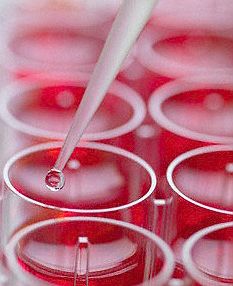TCD Scientists’ Discovery Improves Understanding of the Development of Autoimmune Diseases such as Multiple Sclerosis
Posted on: 14 August 2009
Multiple sclerosis, rheumatoid arthritis and diabetes patients could benefit from a research discovery at Trinity College Dublin.
Professor of Experimental Immunology, Kingston Mills and his research team at Trinity College Dublin have discovered new information on how autoimmune diseases such as those mentioned above, develop.
The research found that the source of a particular messenger molecule (in technical terms this molecule is a cytokine called IL-17) which is the major cause of cellular inflammation was produced by a heretofore unsuspected group of cells. These cells called gamma delta T cells orchestrate the inflammatory process.
Autoimmune and chronic inflammatory diseases, such as multiple sclerosis, rheumatoid arthritis, type 1 diabetes and inflammatory bowel disease affect 20% of the population worldwide. The findings of the research led by Professor Kingston Mills at TCD’s School of Biochemistry and Immunology and funded by Science Foundation Ireland and the Health Research Board have just been published in the Cell press journal, Immunity.
They show that a population of white blood cells – called gamma T cells – infiltrate the brain and secrete a messenger molecule or cytokine – called IL-17 – which promotes the damage in the development of autoimmune diseases as shown in an experimental model for multiple sclerosis.
In Ireland one in 100 or 40,000 people have rheumatoid arthritis and one in 800 or 4,500 have multiple sclerosis. There are no cures for these diseases and treatment options focus on relieving pain and inflammation and include steroids and non-steroidal anti-inflammatory drugs as well as ‘biologics’ that target mediators of inflammation. These drugs are only effective in a proportion of individuals and have mild to serious side effects. There is a pressing need for new drugs that are more effective in a high proportion of individuals and effective in a broader range of diseases.
Commenting on the significance of the discovery, Professor Mills stated: “Our findings have considerably enhanced our understanding of the mechanisms which cause the cellular damage in autoimmune diseases, and should help in the design of more effective drug treatments.”
In order to generate these new drugs, there is a need for a better understanding of the diseases processes and to identify new and more effective drug targets for disease therapy and intervention. The findings from the Trinity College Dublin research have shown that the white blood cells – gamma T cells – are a major source of the messenger molecule, cytokine IL-17, which is a primary agent in causing the damage in the development of autoimmune diseases. Furthermore, the research shows that production of IL-17 by the gamma T cells is stimulated in an unconventional manner by another pair of cytokines, called IL-1 and IL-23. This underlines the importance of targeting these messenger molecules or cytokines in the development of new drugs against autoimmune diseases.
Professor Mills’ research team at TCD included postdoctoral fellow, Caroline Sutton and three PhD students, Stephen Lalor, Corinna Brereton and Cheryl Sweeney in collaboration with Dr Ed Lavelle, also in the School of Biochemistry and Immunology.

